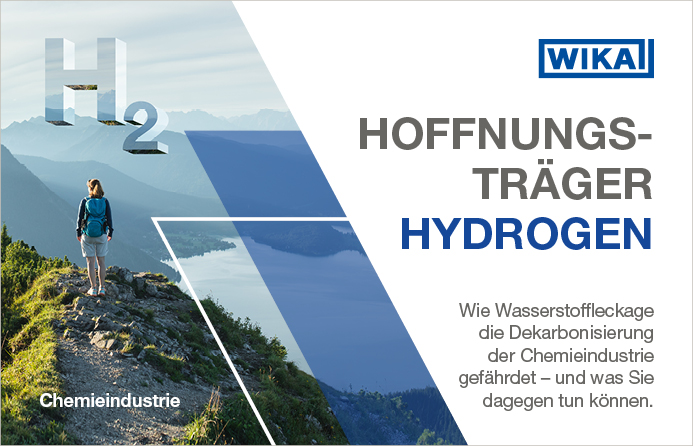During the seventies and eighties a non-fouling, fluidized-bed heat exchanger was developed for severely fouling liquids. These plants are ideal for concentrating waste water and in chemical processes where heating or cooling causes polymerization fouling or resinous deposits.
Dr. D. G. Klaren
Anzeige
In einer Ära, in der die Chemieindustrie mit den Herausforderungen des Klimawandels und der Notwendigkeit einer nachhaltigen Entwicklung konfrontiert ist...
The principle of the self-cleaning heat exchanger is very simple. The fouling liquid is supplied to the inlet channel, where a sophisticated flow distribution system ensures uniform distribution of the liquid and particles over the entire internal surface of the bundle. The particles in the tubes are carried by the upward liquid flow, and have a mild scraping effect on the wall of the heat exchanger tubes which removes any kinds of deposit at an early stage. These particles are made of cut metal wire, glass or ceramics and have diameters varying from one to three millimeters. Liquid and particles flow from the outlet channel into the separator, where the particles are disengaged from the liquid and return through a downcomer and a control channel to the inlet channel.
Advantages
This type of process has a unique self-cleaning potential for fouling liquids. Existing conventional exchangers can be retrofitted into a configuration which applies the self-cleaning technology on an intermittent or continuous basis. New conventional exchangers can be designed in such a way that the self-cleaning technology can be added later.
Applications
One of the first commercial installations was sold to a food processing plant in Japan. This installation uses the self-cleaning heat exchange technology in a forced circulation evaporator for concentrating waste water and operates at a temperature of 75 °C. The decision to use this type of heat exchanger was made after tests showing that a conventional heat exchanger was unable to operate, due to excessive fouling of the heat transfer surface. In August 1997, the plant was put into operation successfully (Fig. 1).
The self-cleaning heat exchange technology offers also a number of special possibilities for concentrating waste waters. It is possible to concentrate fouling waste waters in a single-stage, forced-circulation evaporator at much higher temperatures, e.g. 150 to 200°C, and pressures of 6 to 15 bar. The advantage of this waste water concentration system is that the heating energy can be used for steam production and useful upgrading of waste water. In most cases, an evaporator equipped with a conventional heat exchanger will only produce this vapour at low temperatures and pressures, in order to avoid very severe fouling of the heat transfer surface.
Self-cleaning heat exchangers can also be used in many other applications, such as chemical processes where heating or cooling causes polymerization fouling or resinous deposits, cooling crystallization or raw juice heating.
Klarex Technology BV
Fax: ++31/252520920
Further information cpp-249
Unsere Whitepaper-Empfehlung
Wasserstoff gilt als Schlüssel für die Dekarbonisierung der Chemieindustrie. Doch die Nutzung des vermeintlichen Hoffnungsträgers Hydrogen birgt auch Gefahren und stellt die Branche vor neue Herausforderungen, die das gratis Whitepaper „H2 wie Hoffnungsträger?“ näher für Sie…
Teilen:













